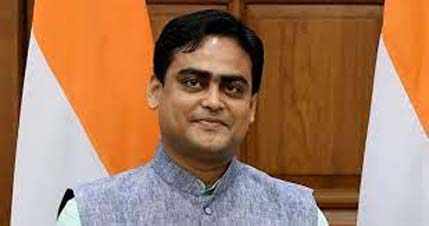Amidst the milieu of political discord, a tumultuous scenario has arisen concerning the forthcoming Baruni Mela of Matuas, slated for April 6. This annual religious congregation transpires at Thakurnagar Thakurbari of Gaighata in North 24 Parganas, West Bengal. The event, steeped in tradition, has now become a battleground for political contention between the Bharatiya Janata Party and the Trinamool Congress within the state’s domain.
Accusations have been levied by Union State Minister and Bangaon Lok Sabha MP, Shantanu Thakur, against Mamata Thakur of the TMC, alleging her plea to impose Section 144 to quell the Matuas’ religious assembly.
Moreover, Shantanu revealed an alleged conspiracy by the state’s electricity department to withhold power supply during the fair, asserting, “The authorities have conveyed their inability to furnish electricity.”
Undeterred by the potential imposition of Section 144, Shantanu remains resolute that the Mela will proceed, drawing a throng of devout attendees. Conversely, Mamata Bala Thakur, erstwhile MP representing the Trinamool Congress, asserts, “The invocation of Section 144 aims to preempt any illicit activities at the Mela, ensuring minimal disruption to the pilgrims’ experience.”
Central to the controversy lies the Matua Maha Mela, a momentous event that encapsulates the rich cultural tapestry of the Matua community. Originating from the ranks of the lower echelons of Avarna Hindus, specifically the Namasudra Scheduled Caste group, the Matua Community, also known as “Chandalas,” commemorates this occasion fervently. The Matua Dharma Maha Mela serves as a poignant tribute to the ancestral customs and ethos established by Shree Shree Harichand Thakur, perpetuated by Guruchand Thakur and Boro Ma.









